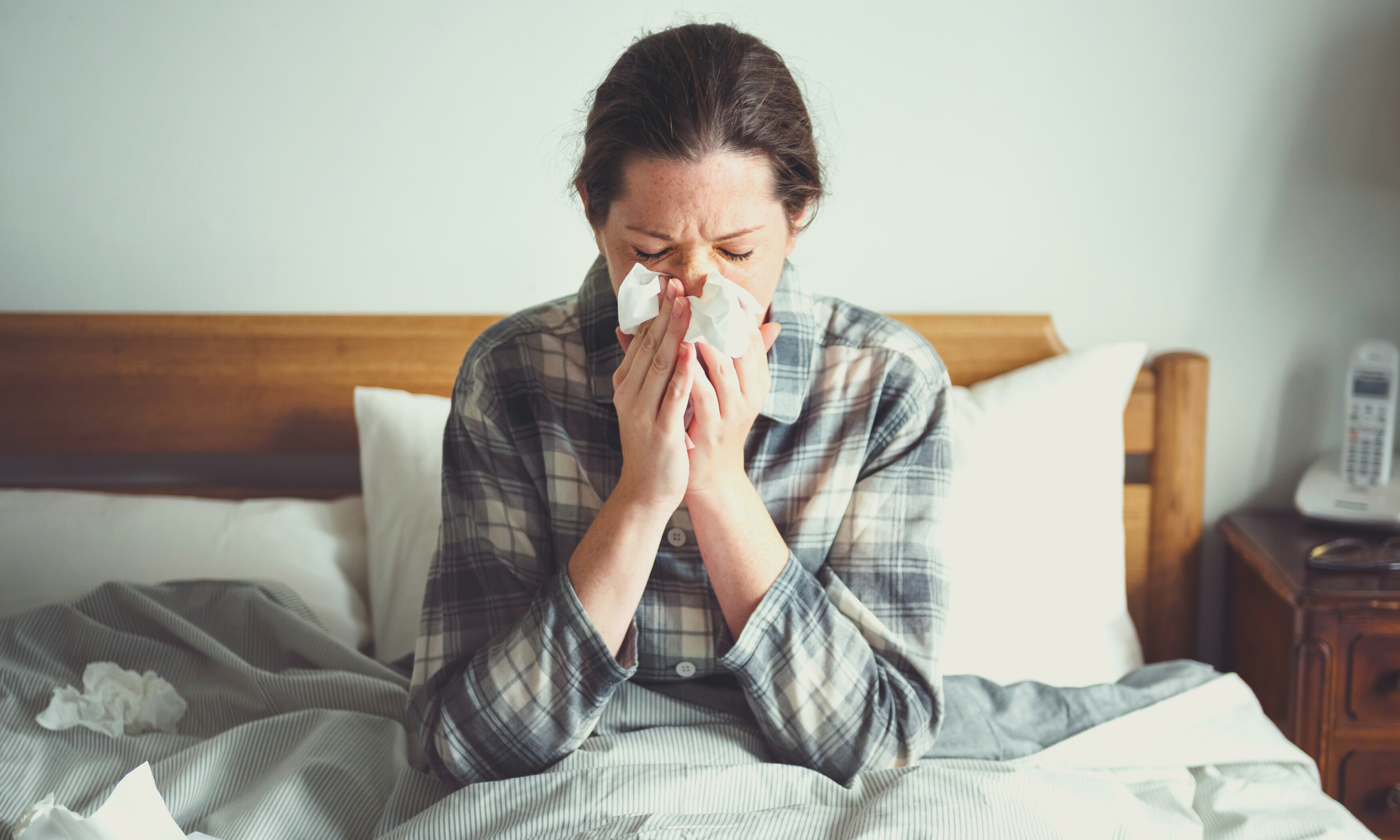HSPs + Health Challenges: 6 Ways We’re Different!
After two years of being diligent, last month I came down with Covid for the first time. As I went through the two-week journey of having the virus, it reminded me of the myriad of ways that highly sensitive people experience health challenges differently. Whether or not you’ve been through this yourself, I think you’ll find parallels to your own experiences of navigating life as an HSP.
For the first two days of being symptomatic my emotions were very heightened which I’ve heard was true for other sensitive folks as well. Partly this was because I was struggling with the transition to feeling sick, adjusting to the new physical sensations, and found myself in a very existential place, as is typical for HSPs going through any new experience. After being inundated with countless heartbreaking stories of catching this virus, my mind was also flashing through all the what-ifs of testing positive:
Will I get really sick?
How long will the fatigue last?
What are the long-term consequences?
Will people think I was irresponsible?
Big Emotions
Dealing with Covid as an HSP was not just a physical experience, but also an emotional and mental one as well. I’ve seen many other people treat this casually like getting a common cold, but no surprise - I wasn’t able to do that. The changes to my breathing, energy levels, appetite, and mental acuity were very apparent and I couldn’t help but be impacted by the unpredictable nature of what my body was going through. Unlike a typical cold or flu, the process was not linear. I would move in and out of different symptoms; feeling terrible one day, normal the next, and then terrible again. No day was ever the same, creating a bit of an emotional rollercoaster in not knowing what to expect or how long this would last.
Overwhelmed + Unprepared
As you know, sensitive folks prefer to be able to anticipate and prepare as much as possible before doing something. Knowing what to expect allows your brain to prepare a few different approaches and not feel so overwhelmed in the moment. For instance, if you’re going out to dinner with friends - you can look at the menu ahead of time, find out who else will be attending, decide what to wear, and set a time when you want to head home. When you get to the restaurant you have made some important decisions ahead of time which makes it easier to manage feeling overwhelmed by the noisy environment or the potential anxiety of socializing with new people or being in a new space.
Having never had Covid before, I was unable to process what the experience would be like. As a highly sensitive person, you’re likely to be more aware of subtle changes in your body and notice the early signs of health issues long before they are detectable by doctors which can be helpful but more often just feels overstimulating from the inside out. Getting irritable, weepy, or easily distracted would all be completely understandable in this situation as your brain is working hard to track and understand what your body is going through. Also, it’s common to feel more side effects from medication or need smaller doses. Personally, I was very “amped up” from the decongestants and “knocked out” from the antihistamines.
“Longer” Recovery Times
Feeling more “sensitive” to the effects of Covid or any illness can create a longer healing trajectory, noticing the symptoms at a subtle level earlier and longer. As a result, you may worry that others are perceiving you as “faking it” or over exaggerating to get more time off. It may be difficult to justify to family members or coworkers why you’re taking longer to fully recover and still need time to rest. This can bring up feelings of anxiety, self-doubt, or internalized pressure to return to normal functioning before you’re ready.
Another layer is wanting to be conscientious about your impact on others. If you’re asymptomatic or feeling better but still testing positive there will be pressure to return to work, but as an HSP you are very aware of the impact of your decisions on others and want to follow the rules. This could create a lot of conflicting feelings of wanting to please your supervisor by returning to your work duties as soon as possible, but also worrying you could be contagious. There is just so much to consider!
Increased Self-Doubt
When you’re under the weather you have even less capacity than usual, which can be a difficult experience for someone who already requires more downtime than the people around them. From everyone I’ve talked to, post-Covid fatigue can linger for quite some time, leaving you with diminished capacity for several weeks or more. Adjusting to doing even less can stir up a range of emotions such as feeling like you’re not enough. You’ll also more easily experience decision fatigue as you make decisions about treatments, testing, and returning to your obligations.
Whenever you’re experiencing your own health challenges, remember that it’s common for HSPs to be impacted differently than others:
Feeling overstimulated or anxious by sudden onset of symptoms and changes to physical health
More emotionally impacted by the symptoms and what it means to have the illness, especially if atypical
Will deeply process the short and long-term implications of being sick
Pick up on symptoms at a more subtle level, making the trajectory seem more drawn out
Anecdotally HSPs experience more side effects from medications and often need smaller doses
Transitioning back into a normal routine may take longer due to heightened awareness of symptoms and considering impact on others
Whether you’re managing a health issue, navigating a transition of any kind, or dealing with an unpredictable circumstance, be gentle with yourself as much as you can. It’s important to honor your needs as a highly sensitive person, remind yourself that your experience is valid even though it’s different from others around you, and offer yourself permission to move at your own pace.




